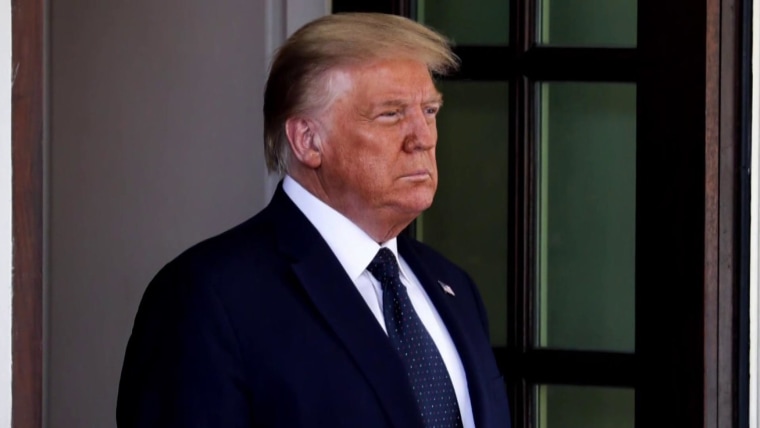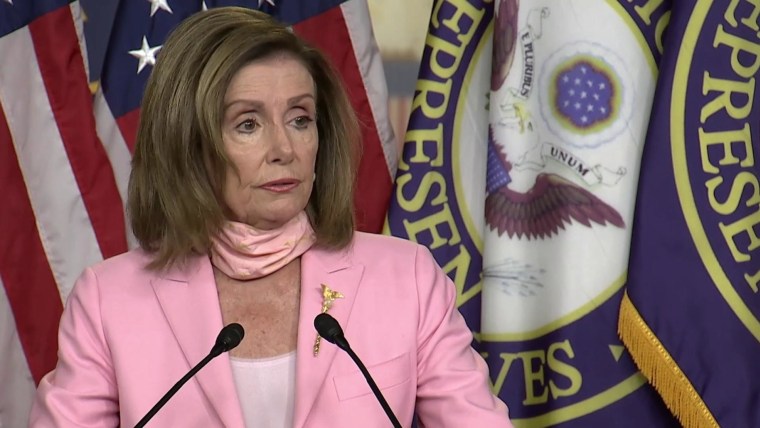WASHINGTON — President Donald Trump appears to be tired of losing at the Supreme Court.
He lashed out Thursday after the justices ruled he is not automatically immune from subpoena. Trump is fighting to prevent a Manhattan grand jury from getting access to his tax records as part of an investigation into hush-money payments he made to two women, and even the justices he appointed, Brett Kavanaugh and Neil Gorsuch, concurred with the majority opinion by Chief Justice John Roberts.
The defeat for Trump, and the privileges of the presidency, comes on the heels of recent high-profile public policy losses at the court. Gorsuch wrote an opinion holding that employers can’t discriminate against gay and transgender people on June 15, and Trump’s effort to end Barack Obama’s Deferred Action for Childhood Arrivals program, or DACA, was rejected three days later.
This time, though, it’s personal. And in a tweetstorm, Trump reacted that way.
“Won all against the Federal Government and the Democrats send everything to politically corrupt New York,” Trump wrote. “Now the Supreme Court gives a delay ruling that they would never have given for another president.”
He’s been left more vulnerable to embarrassment and prosecution — and, for a president who prizes loyalty, the votes of Kavanaugh and Gorsuch may have felt like a betrayal. Moreover, their judgment again undercuts a key messaging point of his campaign: that his Supreme Court picks will deliver victories for conservative Republicans.
The personal aspect is underscored by a simple truth: The high court actually punted, legally speaking.
In fact, Trump’s personal lawyer, Jay Sekulow, described the president’s team as “pleased” with the court’s opinions Thursday in a pair of cases on Trump’s records.
In the New York case, the justices rebuffed Trump’s argument that he is not subject to a subpoena from a state court. That’s a loss, but the justices gave him a route to continue his fight rather than ordering companies to hand over the records to the Manhattan grand jury. Similarly, another ruling handed down Thursday left it to a lower federal court to sort out whether to enforce House subpoenas for Trump’s financial records.
From a legal standpoint, there’s little risk to Trump between now and Election Day.
But the law doesn’t always line up with political interests. The issue will continue to hang over his head as he seeks a second term. He would have been far better off politically if the high court had sided with him and put an end to both cases.
The unifying theme of both cases is that Congress and prosecutors have some room to subpoena the president’s records but not for purely partisan purposes or with ambiguity. In practical terms, that means Trump isn’t in the clear in either case.
As is often the case, the official message of the White House was at odds with the president’s tweeted sentiments.
“This was a win for the president,” White House press secretary Kayleigh McEnany told reporters in the White House briefing Thursday afternoon.
Dan Eberhart, a major Republican donor and Trump supporter, said in an email to NBC News that Democrats — through Congress and the New York prosecutor’s office — are simply seeking every possible avenue to harm the president politically.
“Democrats are using their position for partisan political gain,” he said. “They have been trying to get his financial records since 2016. They obviously think it will help them win in November.”
Speaker Nancy Pelosi, D-Calif., said the House is just trying to conduct proper oversight, but she proclaimed victory in the court affirming the idea that the president isn’t above the law. Further, she said, the ruling in the House case gives the legislative branch a roadmap for enhancing its arguments.
“The path that the Supreme Court has laid out is one that is clearly achievable by us in the lower court and we will continue to go down that path,” she said Thursday.
While it can be difficult to isolate the motivations of elected officials — investigation necessity and partisan purpose often go hand in hand — it’s easy to see that Trump was isolated from his team’s view that he won Thursday, as he concluded his series of social media observations on the conservative-majority court’s opinion.
“POLITICAL WITCH HUNT!” he tweeted.














